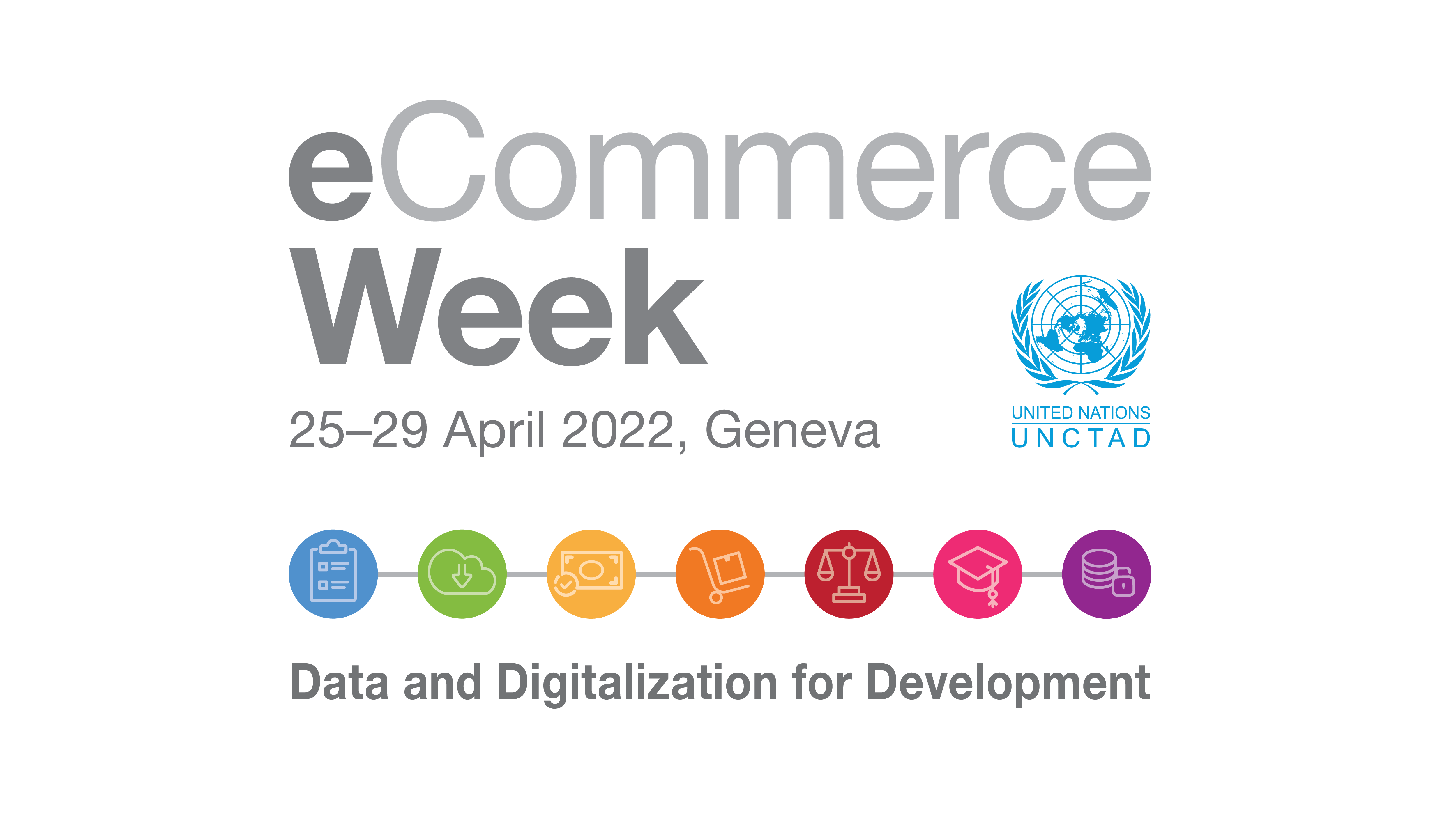Creating a level playing field for digital trade
25 Apr 2022 12:00h - 13:00h
Event report
While the e-commerce sector grows rapidly, capacity differences begin to show between big and small players. Developing countries face many problems ranging from digital divides both abroad and within the country, limited resources, and regulatory difficulties. Experts called for an international approach to data governance structure in order to rebalance the playing field. Mr Michael Pisa (Policy Fellow, Center for Global Development), the moderator of the session, began the discussion by foregrounding some experiences he drew from managing projects on data governance for development. Issues range from the rules on cross-border data flows that often constrain available policy options, to the existence of a few big players that establish procedures that sideline smaller players. Stressing the need for multilateral dialogues, Pisa turned to Ms Pilar Fajarnes (Chief, Digital Economy Policy Research Section, UNCTAD) for more details about the status quo of the playing field. Fajarnes highlighted two prominent data governance issues behind which policymakers are lagging. There is a digital divide within countries, especially along the gender divides. The second is the stark division between developed and developing countries. The US and China are currently the two countries most capable of benefiting from the data economy due to their ownership of more than half of the world’s data centres and their concentration of market capitalisation on big digital platforms. Developing countries and enterprises within are incapable of accessing such data value chains without proper regulations and infrastructure. In this regard, Mr Adedeji Adeniran (Director of Research, The Center for Studies of the Economies of Africa) emphasised the need of enabling African, Asian, and other developing regions to act as value creators in the digital economy and redirecting benefits to their development instead of acting as mere product and service consumers. Adeniran called for laws to develop such an ecosystem that enhances collaborations across small African countries with lower levels of digital penetration and fewer resources than big company players coming from wealthier economies. An example would be the African Union’s (AU) efforts in establishing a data policy framework that patches the highly disaggregated governance structure in the hopes of realising a single digital market. Moving to the legal challenges, Mr Rohan Samarajiva (Chair, LIRNEasia) offered invaluable insights from Sri Lanka, the first South Asian country to have data protection laws. Samarajiva expressed that albeit variances exist among local legal enforcement, there is still an urgent need for globally standardised rules to level the playing field. Many legal frameworks around the world are modelled after the General Data Protection Regulation (GDPR), which incurs high compliance costs for small and medium enterprises (SMEs) and difficult implementation for local policymakers. Sri Lankan decision makers exercised flexibility by ridding enterprises of the registration procedure, yet demanding direct compliance. Fajarnes identified that the primary risk of data governance is fragmentation. While developing countries are catching up to the European approach, they simultaneously face two varying models from the US and China. These three dominant and variegated approaches present a choosing conundrum for developing countries, whose choice might be to fall back to national and protectionist approaches. Fajarnes encouraged an international approach, potentially pursued by the UN for its wide membership, where national and regional level governance serves as building blocks for a global structure that regulates big platforms and bridges the digital divide. Samarajiva depicted a more nuanced picture of regulatory obstacles given that many regulatory targets, such as digital platforms, are not physically located in developing countries. Citing the United States v. Microsoft Corp. case, Samarajiva urged the UN to take the lead on governing lawful access to data in foreign soils, taking inspiration from the CLOUD Act. Setting such standards would allow better tackling of unlawful cyber activities that oftentimes cross borders and in turn smoothen the efficient functioning of e-commerce markets. To logistically begin levelling the playing field, Adeniran stressed the critical role of trust among governments and partners. Developing countries must first inquire about and prioritise the needs of their law enforcement. Adeniran suggested data privacy and protection be the foundations for legal enforcement as a stepping stone to building trust, then moving on to regional and international collaborations. Samarajiva advised re-evaluating the implicit advantages that have been given to big players, such as not being subject to taxation in countries where they do not have a physical presence. Without recognising big players’ resources and institutional privileges, local small players will face an unequal playing field. Fajarnes complemented by stating UNCTAD’s efforts on returning to the basics, such as establishing agreed taxonomies of data governance to facilitate discourse. Furthermore, international support must be given to developing countries to strengthen their capacities in the digital economy sector, including hiring national data strategists, establishing infrastructure for access, and laying regulatory foundations. by Yung-Hsuan Wu
Related topics
Related event

